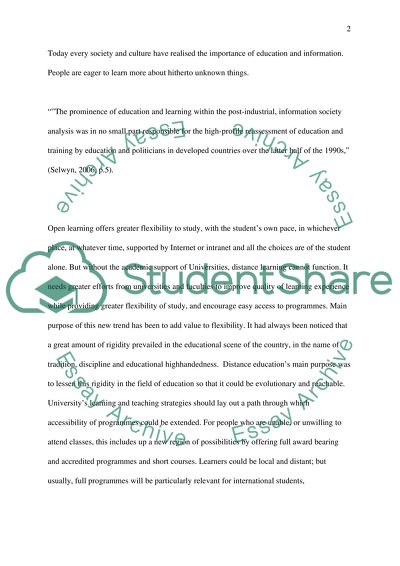Cite this document
(“Distance Education Essay Example | Topics and Well Written Essays - 1750 words”, n.d.)
Retrieved from https://studentshare.org/education/1499918-distance-education
Retrieved from https://studentshare.org/education/1499918-distance-education
(Distance Education Essay Example | Topics and Well Written Essays - 1750 Words)
https://studentshare.org/education/1499918-distance-education.
https://studentshare.org/education/1499918-distance-education.
“Distance Education Essay Example | Topics and Well Written Essays - 1750 Words”, n.d. https://studentshare.org/education/1499918-distance-education.


